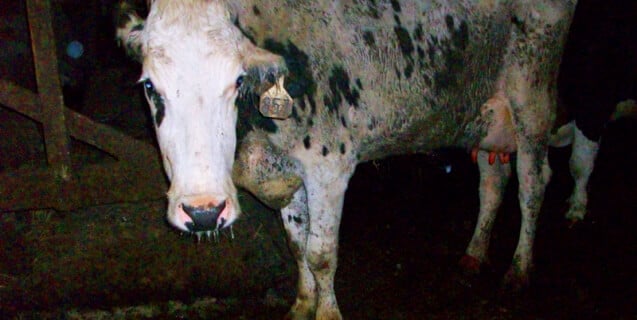Why Cheese Could Make You Heave
After reading these cheese facts, you won’t smile when someone says, “Say cheese!” In fact, the thought of cheese might make your stomach turn. Speaking of stomachs, let’s jump right into why eating cheese could make you heave:
- Many cheeses are made with rennet, an enzyme that comes from calves’ stomach lining. That’s right—the pre-cheese gloop must pass through a simulated calf stomach to start things off. Kinda hard to stomach, isn’t it?
- Cheese is crawling with bacteria—some of it harmless, some of it pretty icky. For example, the same family of bacteria that makes Limburger cheese smell so bad, brevibacterium linens, is what makes your feet smell so bad.
- Two words—spray mold. Cheesemakers spray the outside of soft, slimy cheeses like brie with mold to create a white rind. The next time someone tries to shove a brie-slathered cracker at you, you might want to say, “Hold the mold!”
- If you have to wonder what the pus content of something is, should you really be eating it? Cheese—like all dairy products—contains pus from cows whose udders get bacterial infections when the cows are treated like milk machines by the dairy industry.
- Cheese is loaded with artery-clogging saturated fat and cholesterol. Most varieties derive 70 to 80 percent of their calories from fat, while cream cheese is a whopping 90 percent fat. The good news is that yummy vegan cheeses like Daiya and Tofutti Better Than Cream Cheese contain no cholesterol and slash the fat without sacrificing flavor.
And if all those reasons aren’t enough to make your stomach turn, just think about the cows forced to stand knee-deep in their own feces and mud on factory farms, having their babies ripped away from them within days of birth so that humans can drink the milk nature intended for them.

So, if you’re still eating cheese, what are you waiting for? Spare cows and your health by tossing that moldy piece of pus-laced stomach lining, and try some tempting vegan cheese options today.


